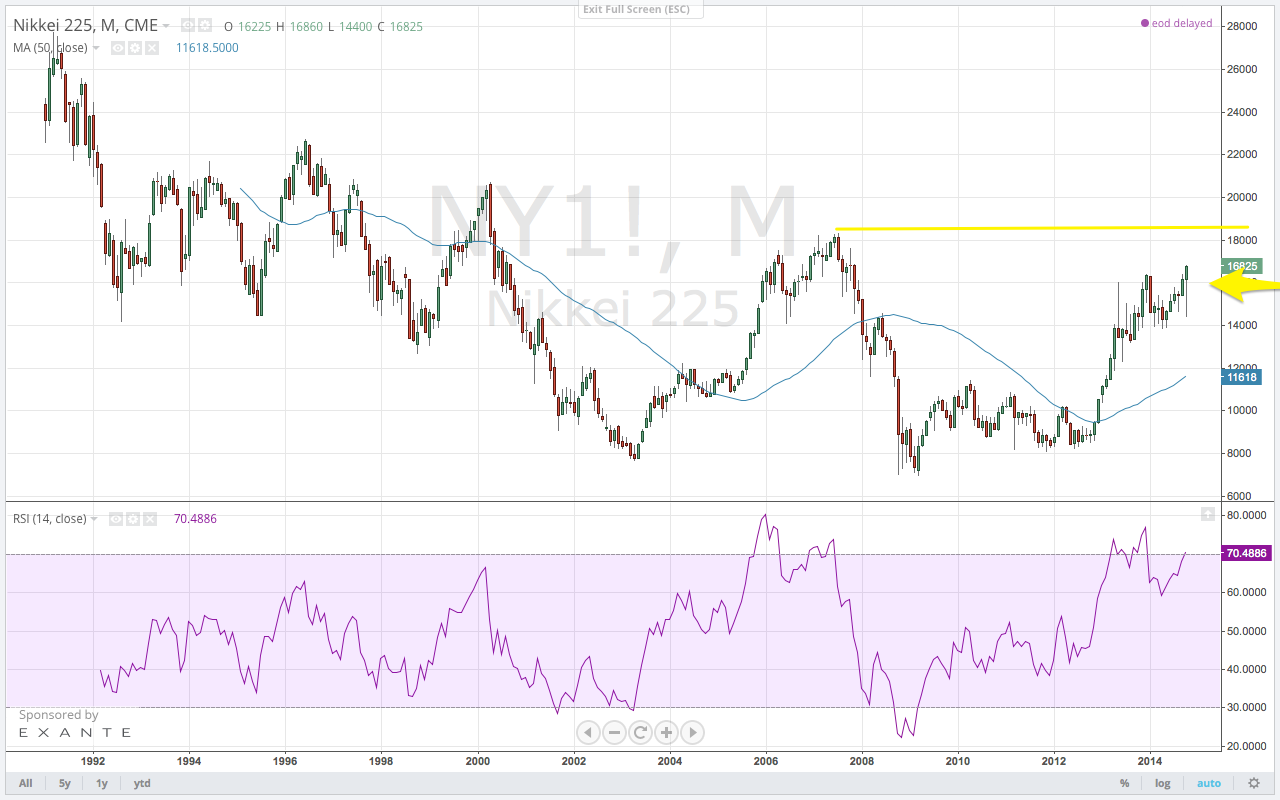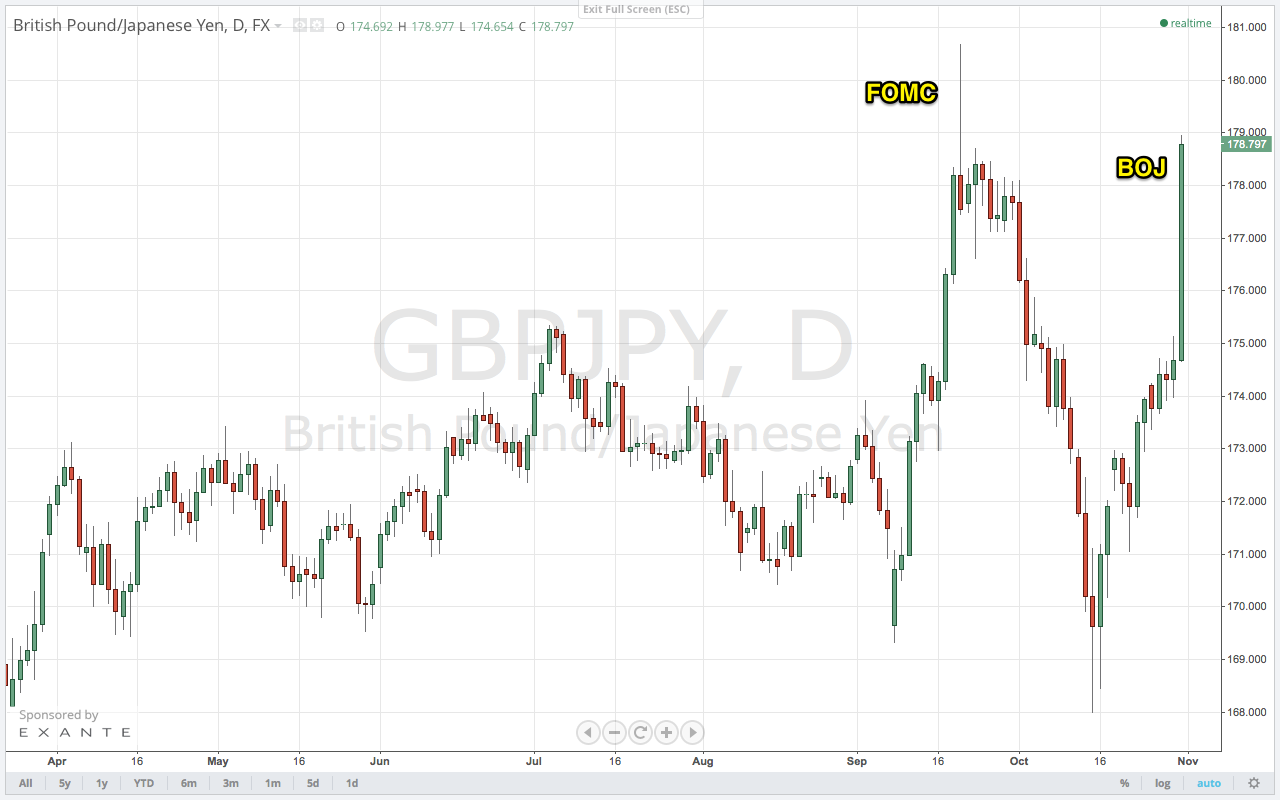Kuroda said the BoJ’s easing was unrelated to portfolio allocations by the Government Pension Investment Fund (GPIF), but the effect of the day’s two major decisions means that the central bank steps up its buying of Japanese government bonds, offsetting the giant pension fund’s increased sales of them.
Source: International Financing Review
Disguised as monetary policy decision to increase quantitative and qualitative easing, the BoJ basically bailed out the pension this morning. With Japan’s population aging, pension payments are coming due. Japanese equities have basically gone nowhere in the last 15 years. So pension has probably been loosing money once you consider fees paid on those assets. The Federal Reserve has basically proven to the world that QE works. We can debate the inequality of its distribution, but needless to say, the US economy is buzzing at 3.5% GDP. That’s right where we need and like to be. So the financial engineering looks to be sound and Japan has no problem using the instrument to increase wealth for its citizens too. QE today promises that the GPIF can meet its obligatory payments to policy holders AND increases the value of the GPIF’s asset holdings. Very win-win. The market likes it.
Read also:
- I see debt people (Quartz)
- Kuroda made his move at the worst possible time… (Twitter)

